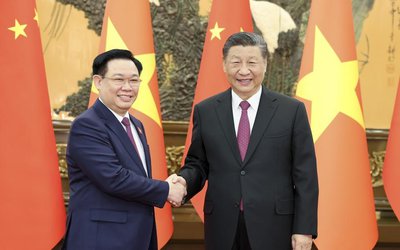More on International






Many saw it coming but very few might have had any inkling that angry students would even target the car carrying Prince Charles—heir to the British throne-- and his wife Camilla.
On the evening of December 9, minutes after the House of Commons voted in favour of increasing the University fees in England by nearly 200 percent – from £3,290 per annum to a maximum of £9,000—students went into rampage. Though majority of Britons still revere monarchy, it seemed that students were targeting anything part of the establishment including the royals.
Prince Charles and his wife remained unhurt and later visited a theatre. British Prime Minister David Cameron condemned the attack terming it “shocking and regrettable.”
Tens of thousands of British students have taken to streets in recent weeks in London and other towns to protest against the coalition government’s plans to hike University fees from 2012. The government says it has been forced to do so as it wants to reduce huge budgetary deficit left over by the previous Labour government.
Overseas students, who arrive in the UK to pursue higher studies, will not be directly hit due to new proposals since Universities are already charging nearly three times higher tuition fee from them in comparison to the domestic students. The new coalition, however, is working on to bring new rules that will directly affect overseas students.
Impact on Overseas Students
“There is concern that the UK is attracting students who aren’t lways the brightest and the best. The Government wants to ensure that those who enter on a student visa come here to study, not to work or with a view to settling here,” said British Home Secretary Theresa May. “Too many students, in particular those studying at private colleges at below degree level, are not in compliance with the terms of their visa. We must take action now to weed out abuse of the student system,” she added.
The UK Border Agency (UKBA) has started a consultation regarding its new proposals that may significantly restrict admission and work conditions for overseas students and their spouses. New proposals include scrapping the provision of two year Post-Study Work (PSW) visa granted to foreign students who graduate from British universities and restrictions for students (as well as dependants) who want to work to support themselves.
“I have already finished my studies and am now waiting for my final results. Now, I am really worried upon hearing that the government may abolish the provision of PSW altogether,” said Karisma Giri, a Nepali student who arrived in UK last year to pursue Masters in Business Management. “It will deprive a rare opportunity to gain work experience for thousands of foreign students like me,” she added.
British Universities, on their part, are worried that new government rules may make UK less competitive and simply unaffordable for many overseas students. Dr Padam Simkhada, a senior lecturer at the School of Health and Related Research at the University of Sheffield, UK, said that over 80 percent of the students at his department are from outside the European Union. “The new rules proposed by the government could force departments like ours to close over the period of time,” he added.
Overseas students contribute an estimated 6.5 billion pounds per annum to the British economy. Universities say new rules proposed by the Conservative—Liberal Democrat coalition will hit them directly.
"This looks like a double whammy of significant spending reduction and making it harder to recruit staff and students," Professor Steve Smith, president of vice-chancellors' umbrella group, Universities UK, told The Guardian newspaper. "In a sector that's seeing 60% to 70% cuts in funding, this could be a serious blow to the UK market in the face of huge competition from other countries that are investing in higher education."
As British economy is trying hard to emerge out of the impact of global economic recession, it seems overseas students may find Britain a less welcoming place as the new government makes their entry conditional and difficult.





